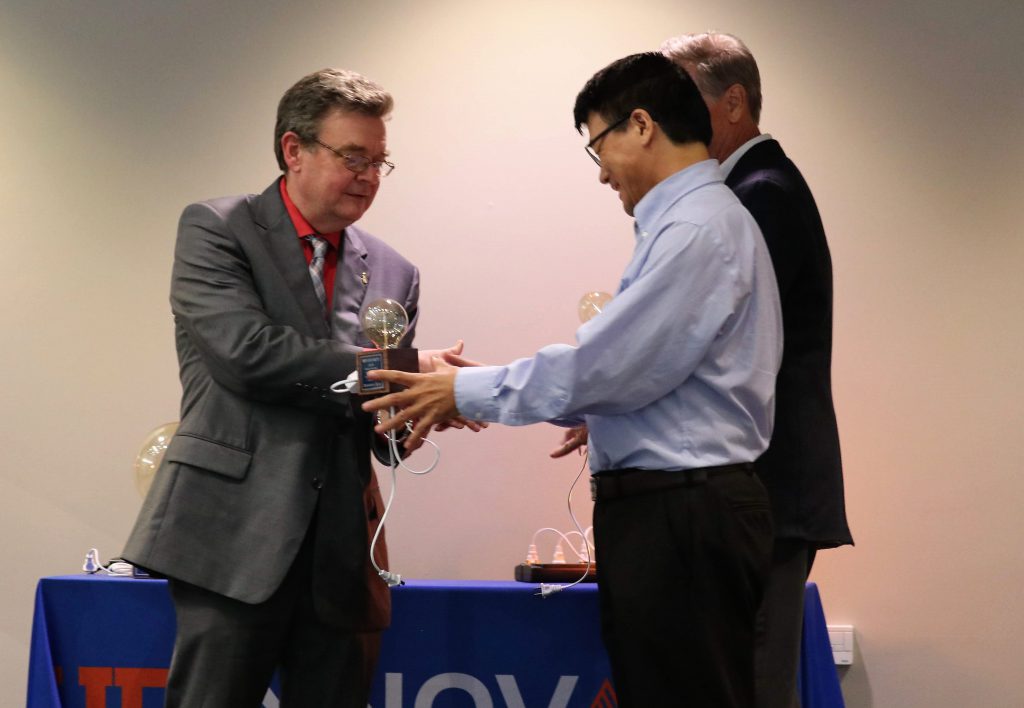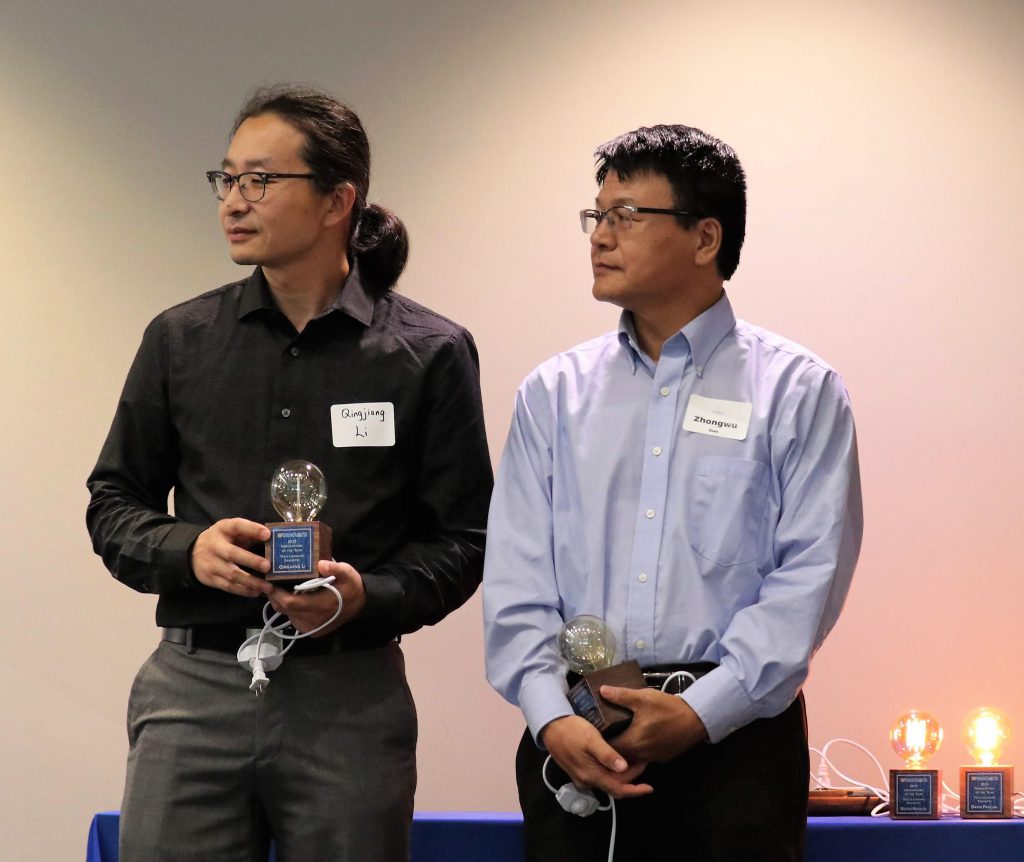UF Researcher Developed a Low-Cost Chemical and Enzymatic Process to Synthesize Glycosphingolipids
Although they are invisible to the naked eye, glycolipids, such as glycosphingolipids (GSLs), are essential molecules for the human body. They keep cell membranes stable and play a key role in various biological processes and in the development and therapeutic discovery for many diseases such as cancer and Alzheimer’s disease. However, these vital molecules and their biologically and medically valuable derivatives are difficult to access and study because they are hard to isolate from nature.
But University of Florida researchers, Professor Zhongwu Guo and his coworkers, developed a simple and cost-effective process for producing GSLs and their derivatives that can be used to make new breakthroughs in research targeting specific cancers and degenerative diseases.

Guo is the UF Scott Professor in the Department of Chemistry. His research focuses on organic chemistry and chemical biology and he became interested in pursuing the process due to his passion for carbohydrate research and glycobiology. He said his method creates glycosphingolipids, a glycolipid that is extremely potent.
Guo’s method can create a larger quantity of these molecules in a pure form, allowing them to be utilized not only to gain a better understanding of many biological processes but also for cancer and degenerative disease treatments.
“To do that, we need to have observable samples to gain more insight,” Guo said. “This type of chemical synthesis overcomes many problems, like low yields found in the field.”
The main barrier to isolating and producing glycosphingolipids in a lab is the high cost to do so, UF Innovate | Tech Licensing Assistant Director Lenny Terry said. Guo’s method combines lower-cost chemical and enzymatic methods to bypass this challenge.
“Dr. Guo has developed an efficient and cost-effective process,” Terry said.
According to Guo, his technology will provide natural GSLs as “standard samples” to researchers. This allows analysis of GSL compositions and helps researchers make comparisons between normal and diseased cells. These studies can give a clue about the mechanisms that cause specific diseases and help identify new signs of disease.
Because they help visualize when cells are not functioning properly, Guo said the molecules he works with are essential to understanding specific cancers like neuroblastoma and degenerative conditions such as Alzheimer’s disease.
“Once we understand the relationship between glycolipids and diseases, it’s going to help us diagnose and treat them in the future,” Guo said.

Guo said his team’s research on the relationships between GSLs and diseases has just started, but he hopes that a partnership with scientists in his department and in the University of Florida’s College of Medicine will help secure National Institutes of Health funding for future research.
Terry worked with Guo to secure a patent for this technology. He nominated Guo’s invention for Invention of the Year at UF Innovate’s annual Standing InnOvation event to honor researchers and their work. Terry works with innovators and technologies from chemistry, materials science, and chemical, mechanical and electrical engineering.
“It is the elegance and combination of the chemical and enzymatic processes that led me to select this technology as Invention of the Year,” Terry said.
Written by Kyle Chambers, marketing intern at UF Innovate | Tech Licensing. Kyle graduated with a bachelor’s degree in journalism and biology and plans to pursue a career in science communications.
